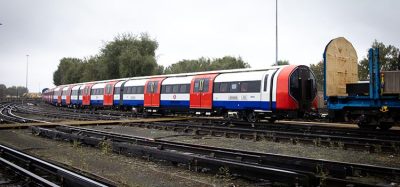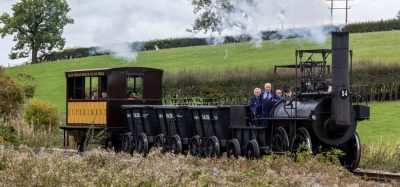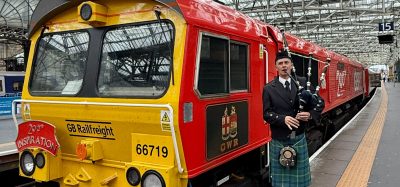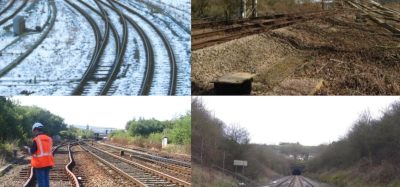Driving infrastructure value through collaboration
Posted: 29 November 2012 | | No comments yet
The railway industry in Britain continues to be characterised by substantial growth in ridership and in major investment programmes. Infrastructure investment in the mainline railway is undertaken predominantly by two main parties working together: the infrastructure manager, Network Rail, as clients, and its extensive supply chain. More than 170 supply companies of all sizes and disciplines are members of the UK railway supply industry’s representative body, the Railway Industry Association (RIA). Increasingly over recent years, Network Rail (NR) and RIA have pursued an agenda of fostering collaboration between each other collectively and between NR and individual supply companies. This joint article summarises some of the key elements of what has been done at the collective level in GB and internationally.
Background to collaboration: One of the key strategic themes RIA has been pursuing for many years is the need to improve efficiency in the UK rail industry by moving away from the traditional adversarial supply-chain relationships to a much more collaborative and mutually beneficial approach. The 2011 McNulty Report, commissioned jointly by the British Government and the Office of Rail Regulation to look at potential efficiencies in the UK railway industry, identified more collaborative behaviour as a key ingredient in achieving these efficiencies. Those developments, along with the arrival of David Higgins at the head of NR, have helped provide the necessary impetus for the industry to work more collaboratively.
The railway industry in Britain continues to be characterised by substantial growth in ridership and in major investment programmes. Infrastructure investment in the mainline railway is undertaken predominantly by two main parties working together: the infrastructure manager, Network Rail, as clients, and its extensive supply chain. More than 170 supply companies of all sizes and disciplines are members of the UK railway supply industry’s representative body, the Railway Industry Association (RIA). Increasingly over recent years, Network Rail (NR) and RIA have pursued an agenda of fostering collaboration between each other collectively and between NR and individual supply companies. This joint article summarises some of the key elements of what has been done at the collective level in GB and internationally. Background to collaboration: One of the key strategic themes RIA has been pursuing for many years is the need to improve efficiency in the UK rail industry by moving away from the traditional adversarial supply-chain relationships to a much more collaborative and mutually beneficial approach. The 2011 McNulty Report, commissioned jointly by the British Government and the Office of Rail Regulation to look at potential efficiencies in the UK railway industry, identified more collaborative behaviour as a key ingredient in achieving these efficiencies. Those developments, along with the arrival of David Higgins at the head of NR, have helped provide the necessary impetus for the industry to work more collaboratively.
The railway industry in Britain continues to be characterised by substantial growth in ridership and in major investment programmes. Infrastructure investment in the mainline railway is undertaken predominantly by two main parties working together: the infrastructure manager, Network Rail, as clients, and its extensive supply chain. More than 170 supply companies of all sizes and disciplines are members of the UK railway supply industry’s representative body, the Railway Industry Association (RIA). Increasingly over recent years, Network Rail (NR) and RIA have pursued an agenda of fostering collaboration between each other collectively and between NR and individual supply companies. This joint article summarises some of the key elements of what has been done at the collective level in GB and internationally.
Background to collaboration
One of the key strategic themes RIA has been pursuing for many years is the need to improve efficiency in the UK rail industry by moving away from the traditional adversarial supply-chain relationships to a much more collaborative and mutually beneficial approach. The 2011 McNulty Report, commissioned jointly by the British Government and the Office of Rail Regulation to look at potential efficiencies in the UK railway industry, identified more collaborative behaviour as a key ingredient in achieving these efficiencies. Those developments, along with the arrival of David Higgins at the head of NR, have helped provide the necessary impetus for the industry to work more collaboratively.
Strategic collaboration
As part of the process to identify NR’s agreed funding requirements for the next five year Control Period (CP5) beginning in 2014, NR, the Association of Train Operating Companies (ATOC), freight operators and RIA worked together to produce the Initial Industry Plan earlier in 2012. Following the subsequent announcement by Government as to what high level outputs it expects the industry to deliver during the Control Period, those same industry partners are now working together to produce the more detailed Strategic Business Plan by January 2013. This reflects a much more collaborative cross-industry approach than that adopted during the planning for the previous Control Period.
RIA Special Interest Groups and the NR Commercial Directors Forum
RIA currently runs nearly 20 Special Interest Groups (SIGs) covering a wide range of strategic and technical topics including Consultancy, Electrification (both Commercial and Technical), and Signalling and Telecoms, where RIA members and Network Rail and other client representatives meet on a regular – usually quarterly – basis.
The main interface with NR at senior strategic level is via the Infrastructure Clients Interface Group (ICIG) which, because of the pace of change within NR, now meets roughly every eight weeks, with NR attending every meeting at senior level. All the meetings are highly interactive with strong levels of attendance from RIA membership. They offer suppliers the opportunity to meet and talk with senior representatives from NR and other clients and to allow networking with fellow members across most levels of the supply chain.
Additionally, NR runs and hosts the Commercial Directors Forum (CDF), also quarterly, which provides the opportunity for key suppliers and RIA to engage with NR in addressing important commercial issues through a series of important workstreams.
The annual Network Rail Suppliers Perception Survey
For the last seven years, NR and RIA (along with the Civil Engineering Contractors Association) have undertaken an annual Suppliers Perception Survey (SPS) in which an inde – pendent body interviews approximately 70 selected suppliers to get their responses to questions relating to the level and quality of their engagement with NR. Each year the results are published and fed back to suppliers and within Network Rail. The results of this year’s Survey represent a substantial improvement in many of the most-important areas surveyed.
In answering the questions suppliers are encouraged to provide verbatim comments to support their answers. These comments can be rendered anonymous if respondents wish but this year 57% (compared to 47% in 2011 and 40% in 2009) were happy to have their comments attributed. Overall satisfaction with NR had risen, driven by a fall in dissatisfied suppliers from 16% to 6%. There is still much to do, however, and the Survey flagged up a number of areas where improvement is needed – e.g. workbank planning, and earlier supplier involvement – and NR, RIA and suppliers will continue to work hard on those.
RIA Value Improvement Programme and BS11000
As part of its own drive to encourage more collaborative supply chain behaviours RIA, in conjunction with other key industry players, developed the Value Improvement Programme (VIP) a number of years ago. This approach is based on independently facilitated workshops, underpinned by an agreed Code of Practice (available on both the RIA and NR websites), which seeks to improve efficiency by promoting more collaborative behaviours between supply chain partners. Over 90 successful workshops have been held (the majority between NR and suppliers). Most recently the VIP principles were used in compiling a report commissioned by NR to examine the options for a more efficient track renewal strategy for CP5, and this dialogue will continue as the new strategy is worked up.
British Standard (BS) 11000 is the world’s first collaborative framework standard and is applicable to all industries. It is relatively new and so still gaining traction. Nonetheless, NR and a number of RIA member suppliers have already achieved BS11000 accreditation in respect of a series of specific projects with more to follow. There is a link here to VIP, which is one of the tools which can help a company achieve BS11000 accreditation.
Electrification programme
The British Government has recently confirmed a substantial and very welcome rolling programme of new electrification work across much of the country. RIA and its members have, through participation in a series of crossindustry workstreams with Network Rail, been instrumental in the process of building the case for such a programme. NR is taking the lead in identifying to what extent the availability of skilled overhead line design, construction and certification resources might constrain programme delivery and the steps which industry can take collectively to address the issue. A supply chain questionnaire is being developed to allow the present resource levels to be baselined, broken down by skills and then set against forecast requirements. The project will also be looking at identifying those more experienced individuals who could act as crossindustry electrification mentors.
The National Skills Academy for Railway Engineering (NSARE)
It is clear that the right amount of appropriately skilled engineering personnel is critical if the UK rail industry is to deliver the large programme of work required of it over the next 15-20 years. In order to help achieve that, an industry-wide body has been established to help cater for the industry’s burgeoning engineering require ments. RIA took the industry lead in promoting NSARE in order to gain the necessary start-up funding and NSARE is now well-established with strong Government and industry support. The NSARE Board includes representatives from RIA, individual suppliers, train operators and the major clients such as NR, Transport for London (TfL) and Crossrail. One of the key pieces of work currently being undertaken by NSARE is an analysis to show where the current skills shortages lie and where they are expected to develop. NSARE will also be closely involved in the aforementioned electrification resource work.
Internationally
Further afield, Network Rail and RIA are cooperating at international level through their respective representative organisations – the European Infrastructure Managers Association (EIM) and the European Federation of Railway Trackwork Contractors (EFRTC), together with the Community of European Railways and Infrastructure Managers (CER).
Most recently, in October 2012, Network Rail Track Programme Director Steve Featherstone, and RIA Director General and EFRTC Board Member Jeremy Candfield, together launched the report of a joint European working group in an important event held at the European Parliament in Brussels and hosted by MEP Ms Ines Ayala Sender. The event was organised by the CER with the message: “A win-win strategy for suppliers and customers: What is the rail sector doing on rail infrastructure maintenance to become more efficient?”
The working group had been chaired by Network Rail and involved representatives from nearly 30 infrastructure managers and contractor organisations from across Europe to produce a guide for assisting both parties to develop best practice across the interface between them – the ultimate aim being to offer better value to all parties through enhanced collaboration (http://www.riagb.org.uk/data/files/MarketStrategyReport.pdf).
The work suggests that the rail industry across Europe, not just in Britain, will benefit from a much closer and more open relationship between rail infrastructure managers and contractors. With annual infrastructure renewal and maintenance spend across Europe of some €30 billion; there is much to go for.
About the authors
Jeremy Candfield is Director General of the Railway Industry Association (RIA), the organisation representing the UK railway supply industry. Jeremy has led RIA’s organisation since 1998. Originally a civil servant in what is now the Department for Transport, Jeremy was involved in the mid-80s and early-90s with finance for British Rail and then with light-rail projects. Jeremy was subsequently an Executive Director of Union Railways throughout the period when the route of the Channel Tunnel Rail Link – now HS1 – was determined and its Parliamentary powers obtained, before becoming Corporate Affairs Director of London and Continental Railways. Jeremy is a Non-Executive Industry Director of the Rail Safety & Standards Board, Deputy Chairman of the National Skills Academy for Rail Engineering and a Member of the Board of the European Federation of Railway Trackwork Contractors, of which for four years he was also President.
Steve Featherstone is responsible for Network Rail’s track renewals programme covering conventional plain line, high output plain line, con – ventional switches and crossings and modular switches and crossings. Prior to this, Steve was Network Rail’s Maintenance Director responsible for maintaining track, lineside, signals, power, telecoms, stations and buildings across the GB rail network.
David McLoughlin is the Finance and Commercial Director for the Infra – structure Projects division within Network Rail. He has held this position for two years with a remit to develop and implement new and innovative commercial arrangements for their national and major capital projects. David has 30 years of experience in the rail industry, primarily in Finance and latterly in procurement and commercial activities. David is a CIMA qualified accountant, gained after studying at Leeds Metropolitan School of Business and an associate member of CIPS. David is currently focused on ensuring delivery of Network Rail’s CP 4 commitments and planning for the huge changes required of Network Rail in delivering future capital projects. He is also a member of the procurement group supporting the UIC (the International Union of Railways).
Global Railway Review Autumn/ Winter Issue 2025
Welcome to 2025’s Autumn/ Winter issue of Global Railway Review!
The dynamism of our sector has never been more apparent, driven by technological leaps, evolving societal demands, and an urgent global imperative for sustainable solutions.
>>> Read the issue in full now! <<<
Issue
Related topics
Related organisations
European Federation of Railway Trackwork Contractors, Network Rail, Railway Industry Association (RIA)







